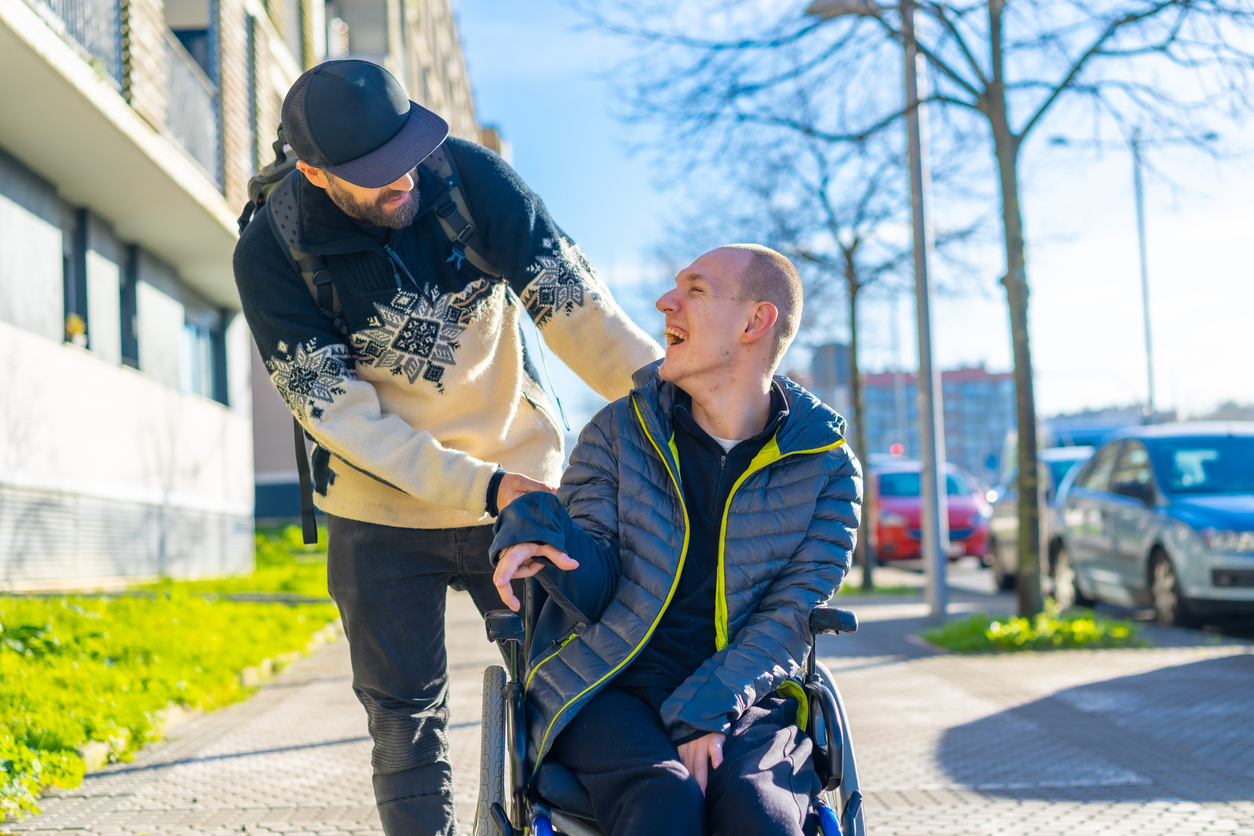National Disability Employment Awareness Month: What You Need to Know

October is National Disability Employment Awareness Month (NDEAM), which is led by the U.S. Department of Labor’s Office of Disability Employment Policy.
The real spirit of NDEAM is found in the ways we honor and participate in securing employment opportunities for people with disabilities across the United States.
2021’s theme is: “America’s Recovery: Powered by Inclusion”.
“My disability is that I cannot use my legs. My handicap is your negative perception of that disability, and thus of me.”
~ Rick Hansen, CEO of Rick Hansen Foundation
Hiring Individuals with Disabilities: Employer Resources and Information
The need is great: labor participation rates for people with disabilities is 21.6%, compared to 67.3% for non-disabled people.1 It is vital for all employers to access resources and knowledge about hiring more people with disabilities. The U.S. Department of Labor’s Office of Disability Employment Policy (ODEP) offers a multitude of resources for employers on the recruitment, hiring, retention, accommodations, and career advancement of people with disabilities for organizations of all sizes, including small businesses. Some employers may feel apprehensive about how to go about hiring people with disabilities, fearing they may say or do something inappropriate or offensive, even inadvertently. "When you hire someone with a disability, it gives the person with a disability confidence and self-worth, but most importantly, it proves they are like everyone else." ~ Justin Farley, Founder of UNlimiters People with disabilities often bring unique perspectives and skills to an employment opportunity that can offer great value, such as the ability to adapt to new situations and/or obstacles, resiliency, creativity, and determination. All employers should do research and become familiar with relevant laws regarding hiring people with disabilities. The Americans With Disabilities Act (ADA) makes it clear interviewers may only ask about a person’s disability if the person has an ‘obvious and visible impairment’ as it pertains to the job in question. Further, if a visible impairment is present, potential employers may only ask about a person’s abilities to perform the job in regards to what accommodations he/she needs to be as successful as possible in the position. Asking about what job modifications would be helpful to a candidate with a disability demonstrates a proactive approach to their future success and removes the stress, from the candidate’s perspective, that what they need won’t be made available by the prospective employer.Common Mistakes to Avoid
Even employers with good intentions can make inadvertent mistakes when hiring candidates with disabilities. By far the most common is focusing more on a candidate’s disability than their abilities. Ask all candidates the same questions related to their qualifications as they pertain to the job requirements, including those with a disability. If the best candidate for the position happens to be someone with a disability, avoid treating the new hire differently. Special treatment is neither needed nor wanted. An employee’s disability is also not a reason to withhold or sugarcoat constructive feedback or areas in need of improvement. “The only disability is when people cannot see human potential.” ~ Debra Ruh, CEO Ruh Global CommunicationsEmployer Resources
The Office of Employment Disability Policy offers several initiatives to assist employers with hiring individuals with disabilities, including:- Employer Assistance and Resource Network on Disability Inclusion
- Job Accommodation Network
- Small Business & Disability Employment
- Professional Development and Advancement
- Framework for Building a Disability-Inclusive Organization












